The race to the bottom in currencies
Recent action on the foreign exchanges has been perverse. The lower a central bank's interest rate, the better it was for its currency. Adrian Ash explains what's going on, and what it means for investors.
Get the latest financial news, insights and expert analysis from our award-winning MoneyWeek team, to help you understand what really matters when it comes to your finances.
You are now subscribed
Your newsletter sign-up was successful
Want to add more newsletters?

Twice daily
MoneyWeek
Get the latest financial news, insights and expert analysis from our award-winning MoneyWeek team, to help you understand what really matters when it comes to your finances.

Four times a week
Look After My Bills
Sign up to our free money-saving newsletter, filled with the latest news and expert advice to help you find the best tips and deals for managing your bills. Start saving today!
Of six central banks voting on interest rates last week, only the European Central Bank in Frankfurt failed to reduce its cost of money to either record or multi-year lows, holding rates steady at 2.0%.
The market's reaction? Forex traders trashed the euro vs. those currencies now paying way less than inflation.
The result for Eurozone investors? Gold leapt to a new record high by the PM Gold Fix in London, recording a new all-time high above €719 an ounce.
MoneyWeek
Subscribe to MoneyWeek today and get your first six magazine issues absolutely FREE

Sign up to Money Morning
Don't miss the latest investment and personal finances news, market analysis, plus money-saving tips with our free twice-daily newsletter
Don't miss the latest investment and personal finances news, market analysis, plus money-saving tips with our free twice-daily newsletter
Big picture? That puts the gold price right back at its long-term high for European cash savers, as measured by the old pre-euro war-horse, the lost and lamented Deutsche mark.
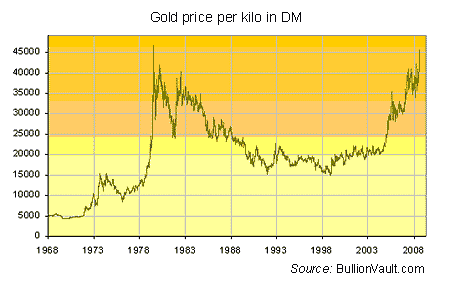
Gold in 2009 has already hit new record highs for Australian, Canadian, Indian and even Swiss buyers.
British gold buyers saw the price surge to £662 an ounce in January up by 100% from just 18 months earlier. Because as sterling slid on the forex market, gold proved itself as the ultimate hedge amid a currency crisis.
Now the euro looks ripe for coming under 'speculative attack' from currency traders trying to get even. The dollar-yen shock starting in summer 2008 whacked pretty much all asset classes. But the biggest losers by far were those currency gamblers still backing the favourites.
During the previous half-decade, the interest-rate gap had paid time and again. Sell the dollar and dump the yen! in exchange for anything bearing a strong or rising interest rate payment. But the bottom fell out of this strategy in mid-2008. Racing first to the bottom, the Japanese yen (zero-hour: May 2001) was then first out of the blocks when debt needed redemption, and currency gamblers all scrambled to cover their shorts. Close on its tail came the almighty dollar (zero-hour: Dec. 2008)...and thus a new form-guide emerged amongst currency traders.
Low yield good, zero yield better. Because in a world of deflation, destroying savers and cutting debt-service costs might just help spark an economic recovery.
That's why, when the Czech central bank slashed its interest rates to an all-time low, the Czech koruna actually bounced vs. the euro;
That's why last week's 100-basis point cut to South African rates worked to stem the slide in the rand now trading one-third below its US-dollar value of last February, despite paying fully 1,050 basis points more;
That's why, last Thursday in London, the Bank of England took its base rate further into record-low territory at 1.0%... currency traders pushed sterling to a two-week high above $1.4650;
That's why last Tuesday, when the Reserve Bank of Australia cut its interest rate to a 45-year low, the Aussie dollar bounced from near six-year lows in response;
That's why last Wednesday, after the central bank of Norway cut its target interest rate by 50 basis points to 2.50%, the Norwegian krone turned higher after losing one-third of its value vs. the dollar since July last year;
And that's also why, on Thursday when the world's number two behind the Fed, the European Central Bank (ECB), opted to keep its rates flat the euro lost 2 from this week's high to trade below $1.2850... despite paying returns to cash fully 200 basis points above the dollar.
Priced in euros, the value of gold which yields nothing already, but also carries no counter-party or inflation risk rose to €720 an ounce, more than 14% higher for 2009 to date.
In short, Thursday's foreign exchange action confirms the currency markets' perverse verdict on falling premiums. First seen last year as the US Fed and Bank of Japan cut their rates to zero and their currencies leapt, this deflation-bent view of lower interest rates says that rewarding savers rather than debtors is beneficial to a currency's future. Whereas failing to cut is a negative.
So if we were in the business here at BullionVault of making short-term calls on the currency markets (which we're not; we just enable private individuals to buy and sell gold), we'd expect the euro to suffer right up until the ECB next meets in March.... or until currency traders start taking ECB chief Jean-Claude Trichet at his word and begin pricing in record-low Eurozone rates ahead.
"I don't exclude that we could reduce interest rates at our next decision," Trichet told a new conference after last week's 'No change' decision.
Asked whether he'll go for a half- or quarter-point cut, M.Trichet replied "It would probably more be the first figure."
You tell 'em Jean-Claude... and you tell 'em straight!
But once the euro starts paying "probably more" like zero than anything better, what next for the currency markets to kick around? The yen...? The dollar...? Everything and everyone all at once...?
In this race to the bottom which even the "inflation-vigilant" European Bank now says it will join private investors with something to lose might want to get a jump on the currencies, and move straight into zero-yielding Gold Bullion.
After all, gold has already proven its value as a "currency crisis" defence for UK investors this year. And if all currencies tipped into crisis together, we'd guess that defence would soon trade sharply higher from here.
Adrian Ash is editor of Gold News and head of research at BullionVault
Get the latest financial news, insights and expert analysis from our award-winning MoneyWeek team, to help you understand what really matters when it comes to your finances.
Adrian has written all things gold related from if it’s worth buying, what the real price of gold should be and what’s the point of gold for MoneyWeek. He has also written for other leading money titles on his gold expertise including Business Insider, Forbes, City A.M, Yahoo Finance and What Investment Magazine. Now Adrian is head of the research desk at BullionVault, a physical market for gold and silver for private investors online.
-
 Can mining stocks deliver golden gains?
Can mining stocks deliver golden gains?With gold and silver prices having outperformed the stock markets last year, mining stocks can be an effective, if volatile, means of gaining exposure
-
 8 ways the ‘sandwich generation’ can protect wealth
8 ways the ‘sandwich generation’ can protect wealthPeople squeezed between caring for ageing parents and adult children or younger grandchildren – known as the ‘sandwich generation’ – are at risk of neglecting their own financial planning. Here’s how to protect yourself and your loved ones’ wealth.
-
 How have central banks evolved in the last century – and are they still fit for purpose?
How have central banks evolved in the last century – and are they still fit for purpose?The rise to power and dominance of the central banks has been a key theme in MoneyWeek in its 25 years. Has their rule been benign?
-
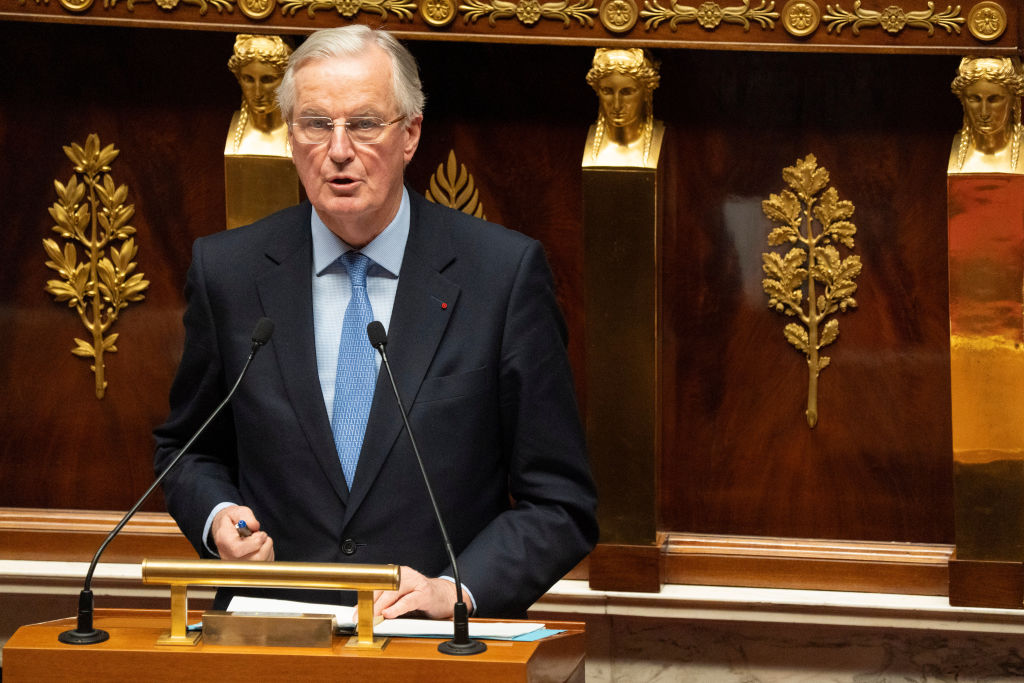 France’s government collapses – could it trigger the next euro crisis?
France’s government collapses – could it trigger the next euro crisis?Briefings France’s government has toppled after losing a vote of no-confidence, plunging the euro zone’s second-largest economy into turmoil. Is this 2012 all over again and should Europe be worried?
-
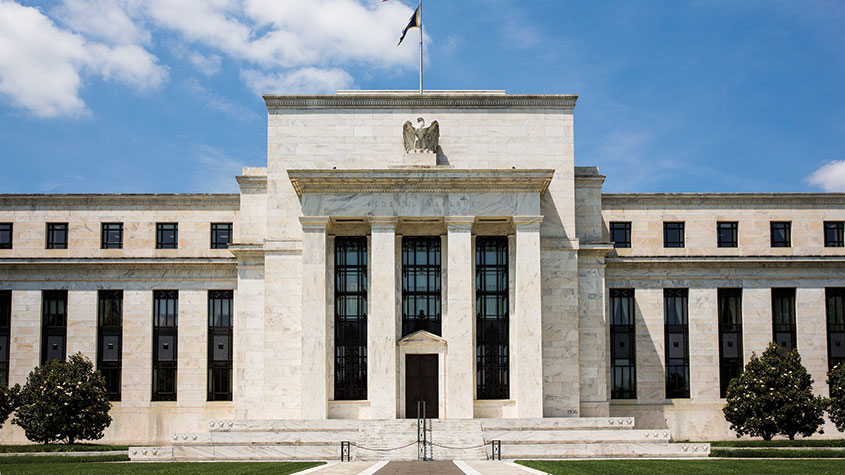 The junk-bond bubble bursts
The junk-bond bubble burstsNews Yields in the US high-yield bond market (AKA junk bonds) have soared to more than 8% since the start of the year as prices collapse.
-
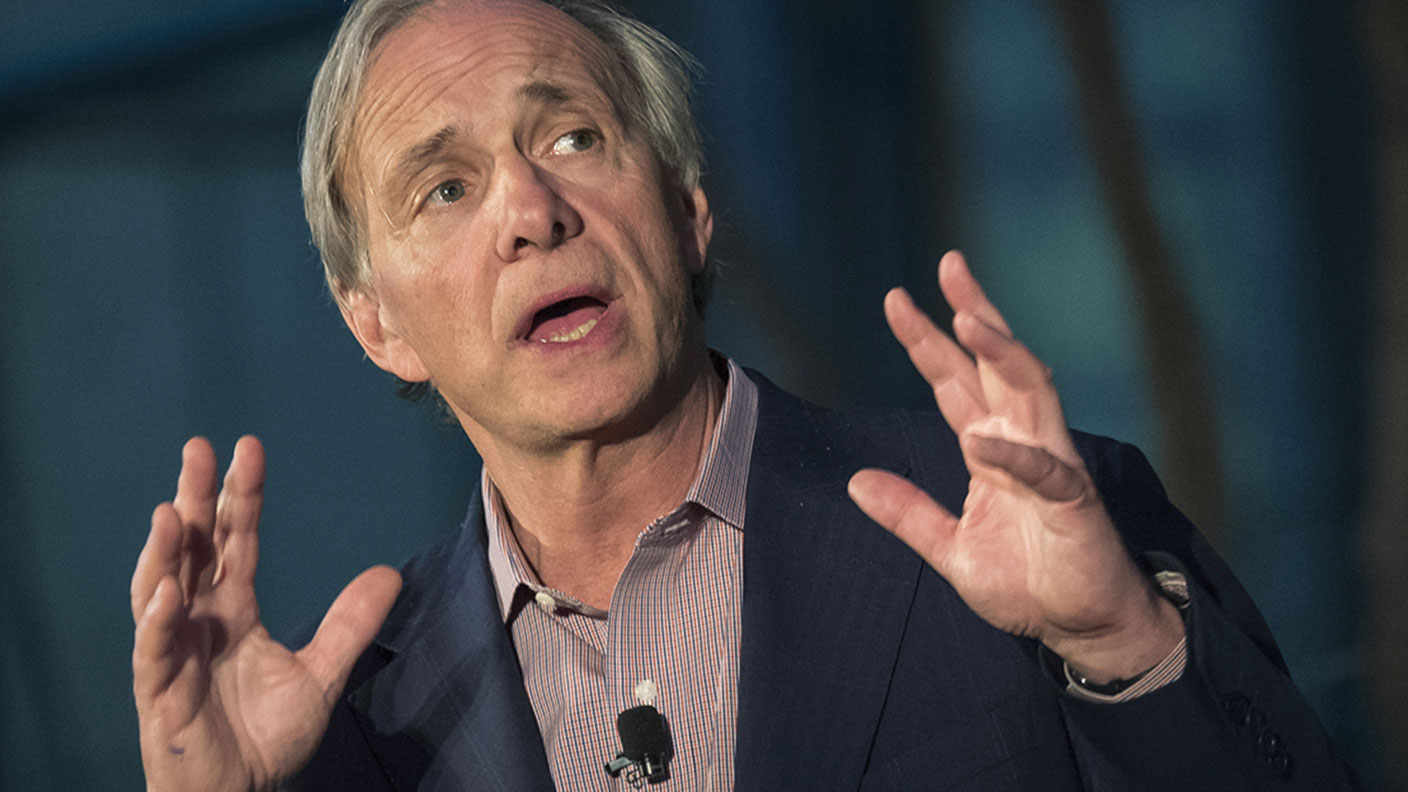 Ray Dalio’s shrewd $10bn bet on the collapse of European stocks
Ray Dalio’s shrewd $10bn bet on the collapse of European stocksOpinion Ray Dalio’s Bridgewater hedge fund is putting its money on a collapse in European stocks. It’s likely to pay off, says Matthew Lynn.
-
 French stocks are back in fashion
French stocks are back in fashionNews France’s CAC 40 stockmarket index gained 29% in 2021, making it the world’s best performing major market.
-
 Has Italy’s economy turned the corner?
Has Italy’s economy turned the corner?News Italy’s FTSE MIB stockmarket index has returned 23% so far this year, more than double the FTSE 100’s performance over the same period.
-
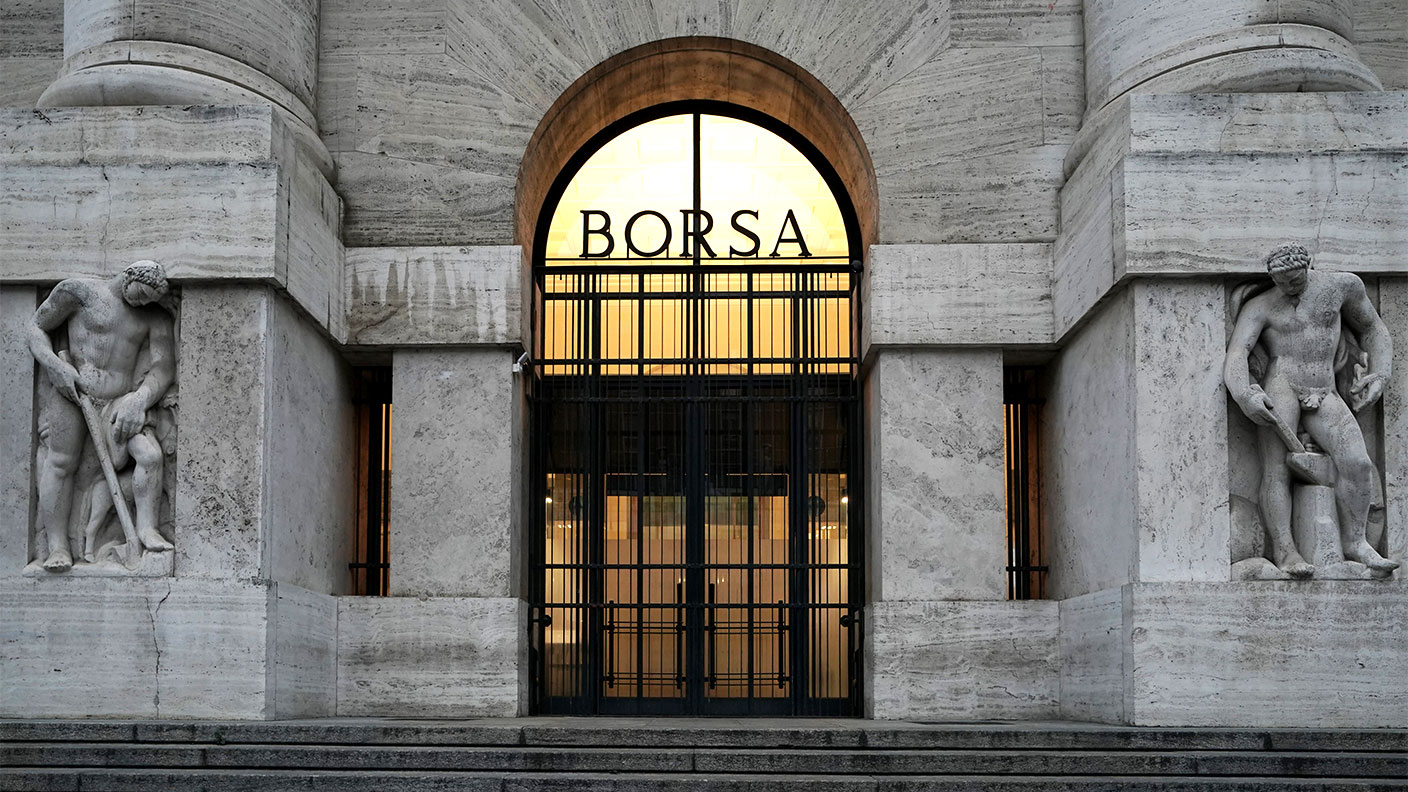 Overlooked European stocks are a solid bargain
Overlooked European stocks are a solid bargainNews The lack of speculative exuberance in European stocks compared to US markets bodes well for investors seeking less tech-heavy drama and more deep value.
-
 Too embarrassed to ask: what are negative interest rates?
Too embarrassed to ask: what are negative interest rates?Videos There’s been a lot of talk from the Bank of England recently about introducing “negative interest rates”. So what on earth are they, and what would they mean for your money?